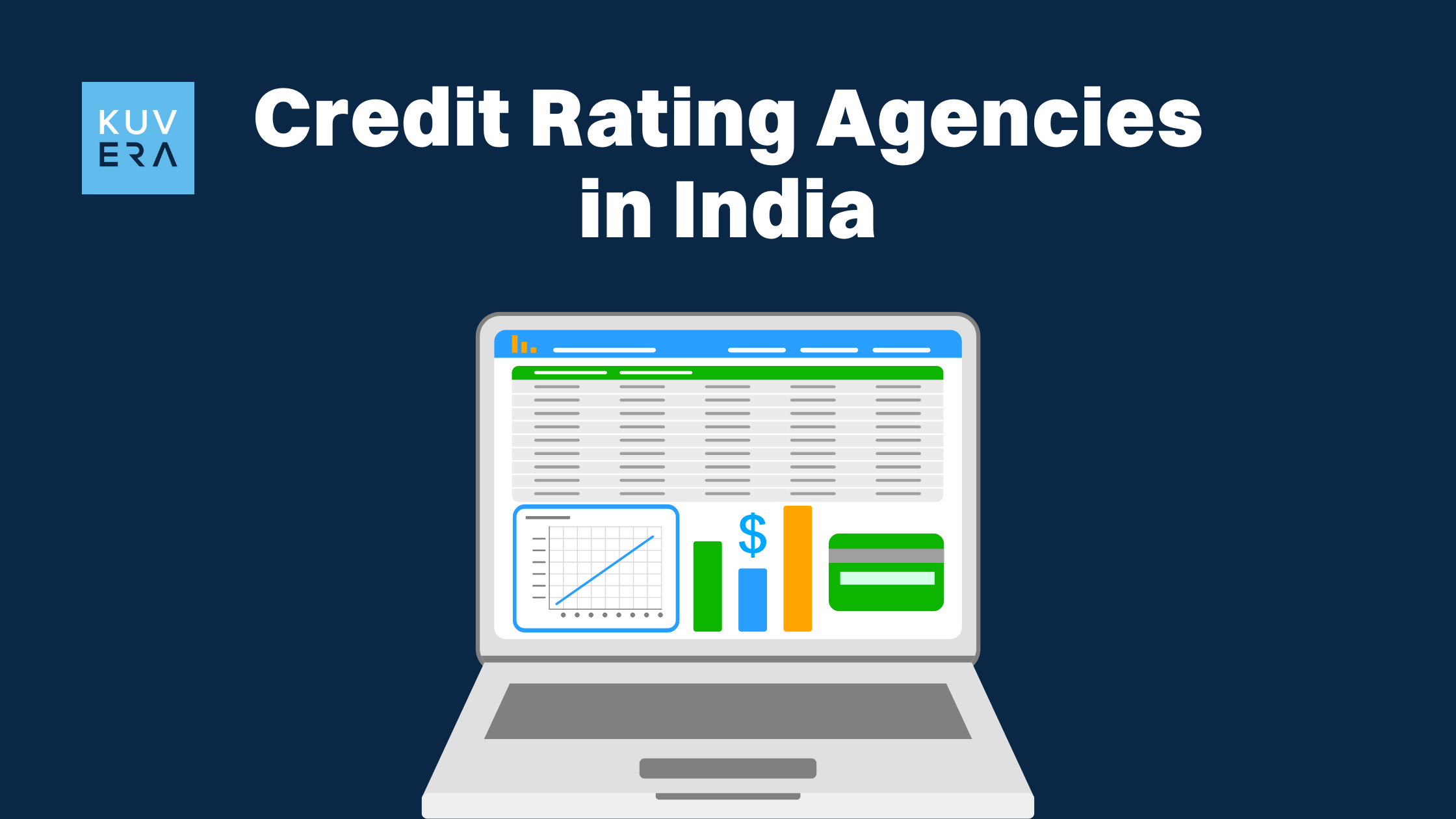In the intricate world of finance, where creations of Rupees Change Hands and Investments Decisions Shape the Economic Landscape, Trust and Transparency are the Most Important Asspects.
So, how dos one assess the creeditworthness of a company or a government entity seeking to raise funds?
This is where credit rating agencies in India can step onto the stage. They can act as independent arbitors of Financial Health. You can think of them as seasoned financial detectives, meticulously analysing balance sheets, scrutinising debt obligations, and ultimately assigning a grade that reflexes the Likelwood of Timeliehood of Timeliers.
For Investors, Especially that Navigating The Complexities of the Debt Market, these ratings services as invaluable compasses. They can guide them towards potentially safer investment Avenues and Away from that that Carry a Higher Risk of default.
A favorite credit rating can unlock access to capital at more competitive rates, fostering business growth and expansion. Therefore, understanding the role and function of creed rating agencies in India is Crucial for Anyone Involved in or Interated in the Indian Financial Ecosystem.
How Credit Rating Agency Operate
The process employed by credit rating agencies in India is a blend of Rigorous Quantitative Analysis and Qualitative Judgment. It is not a simple box-ticking exercise but raather a comprehensive evaluation of an entity’s financial strength and its ability to meet its financial obligations. Here’s a glimpse into the main stages of their operation:
1. Information Gathering
There is the collection of a vast Amount of information about the entity being rated. This include Financial Statements (Balance Sheets, Income Statements, Cash Flow Statements), Operational Data, Management Quality Assessments, Industry Analysis, and Macroeconomic Factors TOCTORS THETORS THETORS THETORS The entity’s performance. Agencies often Interact Directly with the Management of the Rated Entity to Gain Deeper Insights Into their strategies and Risk Management Practices.
2. Quantitative Analysis
In this stage there is a thorough examination of the financial data. Analysts Employees Various Financial Ratios and Models to Assess the Entity’s Liquidity, Solveency, Profitability, and Efficiency. They look for trends, compare the entity’S performance against its peers, and evaluate its ability to generate Sufician Cash Flows to Service Its Debt.
3. Qualitative Analysis
While Numbers Provide a Crucial Foundation, Qualitative Factors Play an equally important role. This can Include an assessment of the management team’s experience and track record, the entity’s competitive position within its industry, regulatory expenses, regulatory expenses, corporate governance perctices, and Any Potent Legal or environmental liabilitys. Undersrstanding the broader business environment and potential future challenges is essential for a holistic rating.
4. Assigning the rating
Based on the Comprehensive Analysis, The Credit Rating Agency in India Assign a Credit Rating. These ratings are typical represented by alphanumeric symbols, such as aaa, aa, a, bbb, bb, b, b, c, d, with aaa generally indicating the highest creditworthes and difault. Each Rating Category often Comes with Further Subdivisions (EG, AA+, AA, AA-AA-AA-) To provide a More Granular Assessment of Credit Risk.
5. Survelance and review
The rating process is not a one-time event. Credit rating agencies continuously monitor the financial health and relevant developments of the entities. They Conduct Periodic reviews and may revise the rating based on significant changes in the entity’s financial condition, Industry Dynamics, or Macroeconomic Environment. This ongoing surveillance ensures that the ratings remain relevant and reflect the current credit risk.
Major credit rating agencies in India and their roles
The Credit Rating Agency in India Play Distinct Yet Interconnected Roles in Mainting The Integry of the Financial System. Several prominent players operate in this space, Each Contributing to the Overall Assessment of Credit Risk.
Some of the Major Credit rating agencies in India are as follows:
1. Crisil (Credit Rating Information Services of India Limited)
Establed in 1987, Crisil was the First Credit Rating Agency in India. It provides a wide range of ratings Across Various Sector, Including Corporates, Banks, Financial Institutions, and Infrastructure Projects. Crisil is also involved in research and advisory services. Its long history and extensive experience has made it a well-respected and influential agency in the Indian market.
2. ICRA Limited (Formerly Investment Information and Credit Rating Agency of India Limited)
Founded in 1991, ICRA is another significant player in the Indian Credit Rating Landscape. It provides ratings for a divese set of debt instruments and entities, include corporate bonds, commercial paper, bank loans, and structured finance transactions. ICra’s Ratings are widely recognized by investors and regulators alike.
3. Care Ratings Limited (Formerly Credit Analysis and Research Limited)
Care ratings commented operations in 1993 and have established itself as a major credit rating agency in India. It can offer ratings a broad spectrum of industry and debt instruments. Care Rating Emphasis its rigorous and transparent rating process.
4. India Rating and Research Private Limited (IND-R)
A Wholly-Owned Subsidiya of Fitch Rating, Ind-R Brings International Expertise and Methodologies to the Indian Market. It provides credit ratings for various sector and debt types, incorporating global best practices in its analysis.
5. Brickwork Rating India Private Limited (BWR)
Establed in 2007, BWR is a relatively newer but recognized credit rating agency in India. It provides ratings for a range of debt instruments, Including bank loans and sme ratings, focusing on transparency and investment.
These agencies, while operating independent, are regulated by the Securities and Exchange Board of India (SEBI). The sebi has put in place regulations to ensure the transparency, objective, and integrity of the creedit rating process, thereby enhancing investor confidence and market stability. The presence of multiple credit rating agencies in India fosters a degree of healthy competition and encourage Rigorous analysis.
Credit Rating and Debt Funds in India
For investors in debt funds in India, Credit ratings are an indispensable tool for evaluating the risk associateed with their investments. Debt funds invest in a variety of fixed-money security, such as corporate bonds, government seconds, and commercial paper. The credit ratings assigned to these underlying security by credit rating agencies in India Provide an indication of the issue’s ability to repay its debt obligations on time.
Here’s how credit ratings can impact debt Mutual Funds:
1. Risk Assessment
Higher-rated debt instruments (EG, AAA, AA) are generally Considered to Carry Lower Credit Risk, meaning there is a highr problem of the ITSUER meeting obligations. Convercely, Lower-Rated Instruments (EG, BB, B) Are Associated with Higher Credit Risk, Indicating a Greater Chance of default. Debt funds holding a significant portion of lower-rated securitys can be considered riskier.
2. Yield and Risk Trade-off
Generally, debt instruments with lower credit ratings can offer higher yields to compensate investors for the increase risk of default. Debt funds that investment primarily in lower-rated seconds may offer potentially higher returns but also also carry a green a greats of Capital Losss.
3. Fund Categorization
Sebi has mandated that debt funds disclose the credit quality of their portfolios. This Allows Investors to Understand The Overall Credit Risk Profile of the Fund. Funds Investing PredeMinantly in High-Rated Securities Are Often Categorized as Lower-Risk, What there-Risk, While that with Significant Exposure to Lower-Repted Papers are Classified as Higher-Risk.
4. Investor due Diligence
While credit ratings can provide a valuable assessment, they are not foolproof. Investors Should not relay on ratings but should also conduct their own du diligence, consider factors such as the fund manager’s expertise, the fund’s inventment strategy strategies, and his own rain Appetite.
5. Potential for Downgrades
It is important to remumber that creedit ratings are dynamic and can change over time. If the Financial Health of an Issuer Deterarates, The Credit Rating Agency in India May Downgrade the Rating of its debt instruments. This can negatively impact the net asset value (Nav) of Debt Funds HOLDING TOSE SEOSE SHOSE Instruments.
Therefore, undersrstanding credit ratings is essential for making informed Investments Decisions in Debt Funds. It allows investors to align their investments with their risk appetiite and to have a clearer picture of the potential risks and rewards involved.
Wrapping up
Credit Rating Agency in India Serve as Vital Pillars of the Indian Financial System. They provide an independent and expert Assessment of Creditworthness, Contributing Significantly to Market Transparency and Investor Protection. For individuals navigating the complexities of investments, particularly in Debt Funds, Understanding the Role and Significance of Credit Rating is paramount. While ratings are a valuable tool, they should be used in connection with other forms of du diligence. The dynamic nature of creditworthiness Nextures Continuous Monitoring and a Comprehensive Understanding of the Factors that can influence an entity an entity to meet its financial obligations.
In Essence, Credit Rating Agency in India Empower Informed Financial Decision-Making. They act as crucial intermediates, bridging the gap between borrowers and lenders by providing a standardized and credible assessment of rain. As the Indian Economy Continues to Grow and Evolve, The Role of these agencies in fostering a stable and transparent financial environment will only become more critical.
Interested in how we think about the markets?
Read More: Zen and the art of investment
Watch here: Learn about the F & O Craze in India



